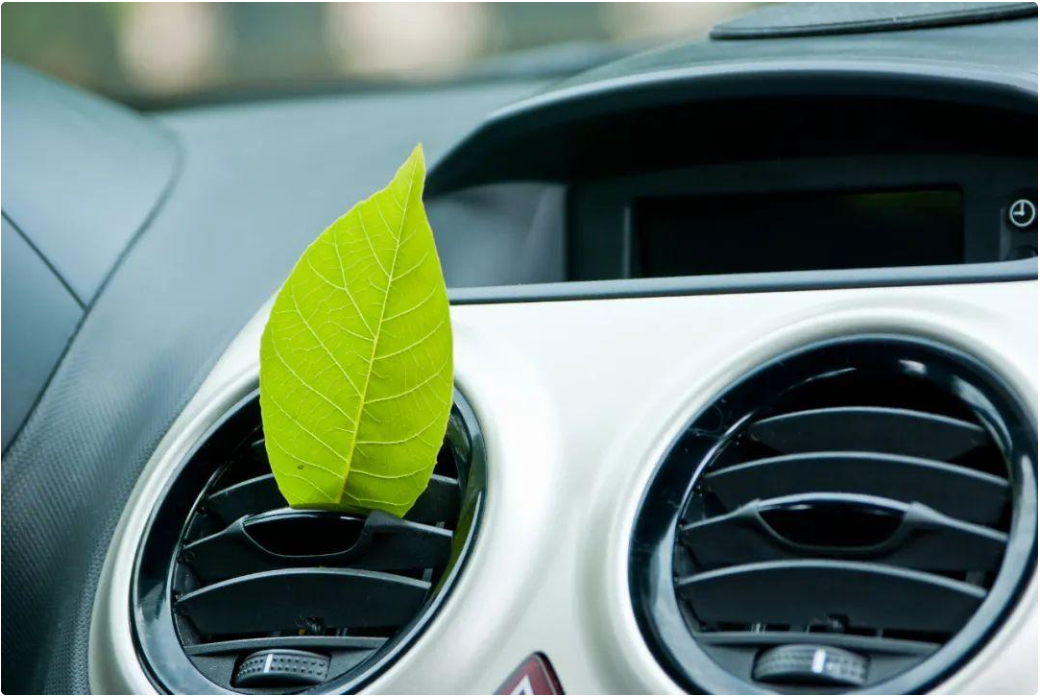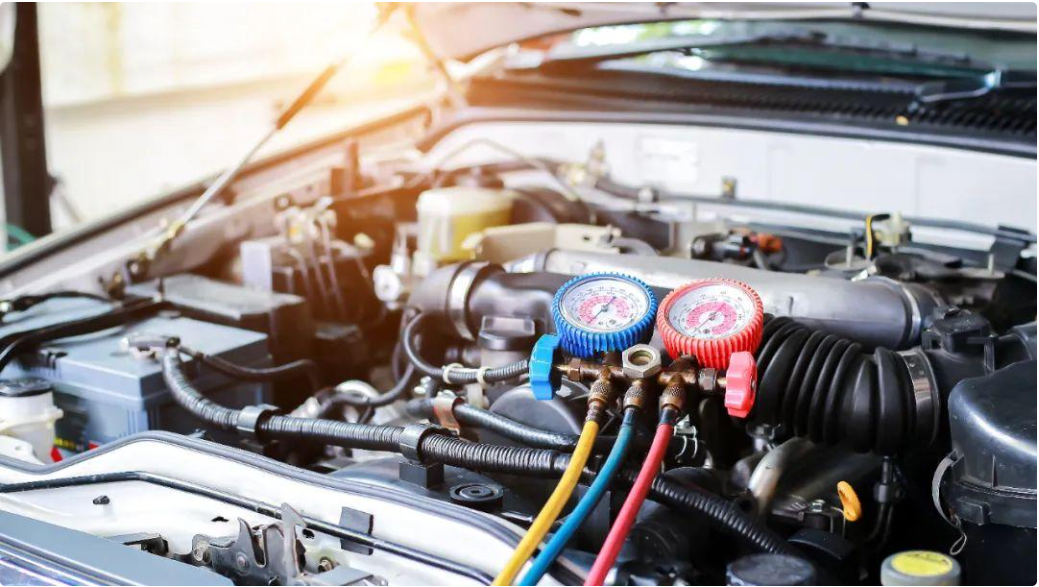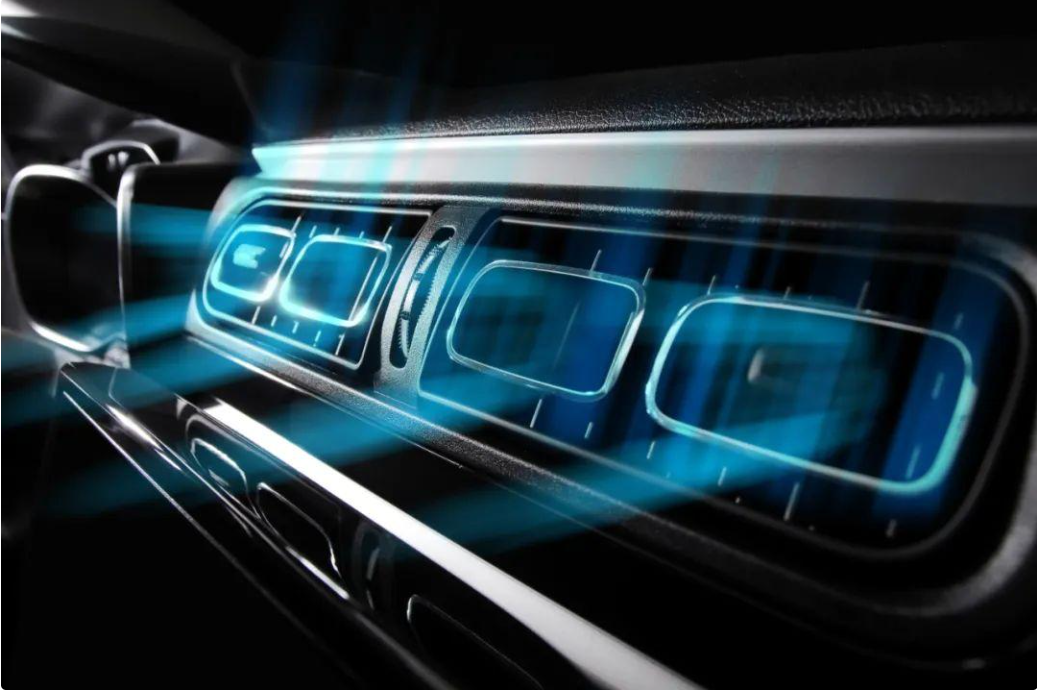Heat pump air conditioner approaching 10 billion scale
Heat pump air conditioner approaching 10 billion scale

The vigorous development of new energy vehicles is accelerating the advancement of multi-industry linkage, and the related upstream and downstream industrial chains have also ushered in a key strategic window period. Among them, the automotive heat pump air conditioner market has shown a trend of rapid development in recent years.
Statistics show that in 2022, the global electric vehicle heat pump air conditioner market size will be about 10.17 billion yuan, a year-on-year increase of 117.3%, and it is expected that the market size will grow to 42 billion yuan by 2025. From the perspective of our country's market, the market size of my country's electric vehicle heat pump air-conditioning system will be about 6.47 billion yuan in 2022, a year-on-year increase of 154.7%. .
Obvious advantages have become the future development trend
"Automotive heat pump air-conditioning is a subdivision of automotive thermal management and one of the development directions of air-conditioning systems. It is considered to be the most promising technology in future automotive air-conditioning systems." In an interview with a reporter from "China Automotive News" At that time, Cao Guangping, an independent researcher on new energy and intelligent networked vehicles, said that with the rapid development of the new energy vehicle industry, the demand for automotive thermal management has grown rapidly, which in turn will drive the expansion of the new energy vehicle air conditioning system market. Among them, the heat pump air-conditioning system has gradually become the future development direction of the new energy vehicle air-conditioning system due to its advantages of high efficiency, energy saving, and environmental protection.
According to reports, with the iteration of technology updates, new energy vehicles have made great progress in terms of driving range and technical level. However, the sharp reduction in driving range under low temperature conditions is still a common problem faced by electric vehicles. How to effectively reduce the energy consumption caused by air conditioning and heating has become a problem that car companies must solve.
Jiang Yadong, engineer of Zhuhai Gree Electric Appliance Co., Ltd., said that the air conditioning system is the auxiliary subsystem that consumes the most energy in electric vehicles. The electric energy consumed by heating in winter accounts for about 1/3 of the energy consumption of the whole vehicle. How to ensure the comfort of the occupants? Minimizing the power consumption of the air conditioning system is the main goal of the current industry research.
In an interview with the reporter, Seiji Inoue, Head of Thermal Development Department of Denso (China), also believed that China leads the world trend in electric vehicles, but the decline in the driving range of vehicles in winter is one of the biggest problems affecting the popularization of electric vehicles . The heat pump air conditioner can increase the mileage of new energy vehicles in winter, and its unique "dehumidification and heating" function can also enable new energy vehicles to save energy during the transitional period of spring and autumn, eliminating users' concerns about driving range .
In this context, heat pump air conditioners have gained new opportunities for development. Jiang Yadong introduced that, unlike the air-conditioning system of traditional fuel vehicles, the air-conditioning system of electric vehicles is electric-driven, and cannot use the heat generated by the engine cooling system to heat the cabin.
At present, most electric vehicles use air-conditioning cooling + thermistor PTC heating. It is reported that PTC heating is directly converted from electric energy into thermal energy, and the coefficient of performance COP<1, which consumes a lot of energy; the heat pump air-conditioning system can realize the functions of cooling and heating through the reverse Carnot cycle, and the heating efficiency is higher, which can realize COP> 2. It can greatly reduce the power consumption of the system, thereby increasing the driving range.
"In recent years, with the rise of the electric vehicle market and the maturity of related heat pump system technology, the heat pump air conditioner market has continued to expand, and the penetration rate of new energy vehicles in my country has basically reached 25%." Cao Guangping introduced, with the national policy With strong support and the growth of market demand, the heat pump air-conditioning system, as one of the important means to realize the thermal management of new energy vehicles, will usher in a broad development space in the market.
Francisco Moreno, president of Valeo's thermal systems business unit, predicts that the value of thermal management systems for electric vehicles will be 2.5 times higher than that of internal combustion engine vehicles, reaching 21 billion euros by 2025 and nearly 40 billion euros by 2030.
Also in the view of Lei Hongjun, a professor at the School of Automotive and Transportation Engineering at Wuhan University of Science and Technology, as an important part of the new energy vehicle industry chain, heat pump air conditioners will be the future development trend of automotive air conditioning systems, and the market for automotive heat pump air conditioners can be expected in the future.

Foreign brands dominate, independent brands are catching up
In fact, heat pump air-conditioning technology was first applied to foreign brand models, and its application technology in passenger cars is relatively mature.
Cao Guangping introduced that for a long time, the international first-class automotive system component suppliers have mastered the key core components in the complete vehicle matching process, and have strong overall thermal management system development capabilities, so they have strong technical advantages in system integration . At present, the global market share of the thermal management industry is mostly occupied by foreign brands. Among them, Denso, Valeo, Hanon, Mahle, Bosch, etc. have launched heat pump air conditioning system solutions, accounting for more than 50% of the global market share.
According to data from Gasgoo Research Institute, Denso has a 37.4% market share in the global automotive air-conditioning system market. As a leader in thermal management in Europe, Valeo's thermal management products include air conditioning systems, powertrain thermal management and battery cooling systems, etc. In recent years, the company has also gradually increased its layout in the field of electrification. According to information on Valeo's official website, since the beginning of 2022, orders for Valeo's thermal management systems for automotive electrification have exceeded 4 billion euros, a 100% increase compared to the same period in 2021. In the past five years, Valeo's thermal management system orders in the field of electrification totaled 11.4 billion euros, accounting for 70% of the group's current thermal management system orders.
In addition, Bosch, Continental, Webasto, Norma and other international component manufacturers have also entered the field of new energy thermal management, and have successively launched highly integrated thermal management solutions.
In contrast, the development of domestic heat pump and air-conditioning companies mainly focuses on the field of electric buses. For example, Shanghai Kallang Songzhi developed a low-temperature inverter heat pump system, which has been widely used in complete vehicles of well-known domestic bus manufacturers. With the rapid development of the domestic new energy vehicle industry, domestic electric vehicles have gradually begun to use heat pump air conditioners.
"Nowadays, heat pump air conditioners have achieved rapid promotion in the field of new energy vehicles. Heat pump air conditioner technology has been verified by the market. Domestic electric vehicle heat pump air conditioners have also begun to be installed, including BYD, SAIC, Changan, Weilai, Aian, Xiaopeng, etc. Brand." Cao Guangping said.
According to relevant data, from January to May 2023, the delivery of standard heat pump air conditioners for new energy passenger vehicles in the Chinese market (excluding imports and exports) has reached nearly 700,000 units, which is equivalent to the delivery volume of last year, and the year-on-year growth rate is even faster. is over 400%.
However, different from the layout of highly integrated system products of overseas giants, domestic manufacturers mainly have some relatively mature single products in thermal management components, such as valve products of Sanhua Intelligent Control, air conditioner compressors of Aotejia, silver The heat exchanger of Lunyuan Co., Ltd., the carbon dioxide high-pressure pipeline of Kelai Electromechanical, etc.
Overall, the vehicle heat pump air conditioner market is still dominated by foreign brands, especially in the integration of heat pump air conditioner systems, while self-owned brands have advantages in parts and components, but the key components with the highest value are still dominated by foreign brands.
"Although my country's electric vehicle heat pump air conditioners started relatively slowly compared with foreign countries, there is still some gap, but in recent years, domestic brands have been catching up and achieved some results, and some companies are gradually growing into solution providers." Cao Guangping said.

Penetration rate is increasing rapidly, but technical difficulties and challenges are still faced
With the continuous advancement of the electrification of vehicles, the penetration rate of vehicle heat pump air conditioners is also increasing. At present, from the perspective of the terminal market, the standard heat pump air-conditioning system has become one of the main comparison reference factors for car owners to choose new energy vehicles. Relevant agencies predict that the pre-installed penetration rate of heat pump air conditioners (accounting for all new energy vehicles) will exceed 20% in 2023, and it is expected to challenge 50% in 2025.
Although the development trend and future space of heat pump air conditioners are unlimited, there are still some difficulties and challenges in the process of practical application and promotion.
Jiang Yadong said that first, when the ambient temperature drops, the heating COP value of the heat pump air conditioner will drop significantly, and when the ambient temperature is too low, it cannot even provide the heating capacity required by the passenger compartment. Secondly, when the heat pump air-conditioning system is running in a low-temperature and high-humidity environment, the outer surface of the heat exchanger outside the vehicle will be covered with a thick layer of frost, which will hinder the effective heat exchange between the working fluid and the outside world, and the heat exchange efficiency will drop significantly. Increased energy consumption. In addition, since the air-conditioning system of new energy vehicles not only needs to realize cooling and heating functions, but also takes into account the energy consumption of the system, which makes the air-conditioning system of new energy vehicles more complex than traditional fuel vehicles. Therefore, the single-vehicle cost of the air-conditioning system of new energy vehicles is significantly higher than that of traditional fuel vehicles, and the cost problem has become one of the problems restricting the promotion of heat pump air conditioners.
"Currently, the high cost and difficulty of development of heat pump air conditioners hinder its development in electric vehicles, and compared with foreign technologies, our manufacturing, innovation and quality control of expansion valves, multi-way switch valves and various components, etc. There are still some gaps.” Cao Guangping said, but with the successive introduction of domestic support policies and the continuous improvement of local advantages, it is expected that the domestic substitution rate of parts and components will increase, and the rich product matrix of parts suppliers has accumulated After integrating experience, the domestic substitution rate of heat pump air-conditioning system integration is also expected to increase. In the new round of technological change, the existing competition pattern of automotive thermal management air-conditioning is expected to be reshaped and rewritten.
A few days ago, the Ministry of Finance released the specific content of the continuation and optimization of the new energy vehicle purchase tax reduction policy, and clarified that the new energy vehicle purchase tax reduction policy will be extended until the end of 2027. The clarification of this policy has further stimulated the consumption of new energy vehicles. , It is a great benefit to the entire industry chain, and the heat pump air conditioner for vehicles, which is the upstream of the automobile industry chain, will also take advantage of this shareholder trend.
